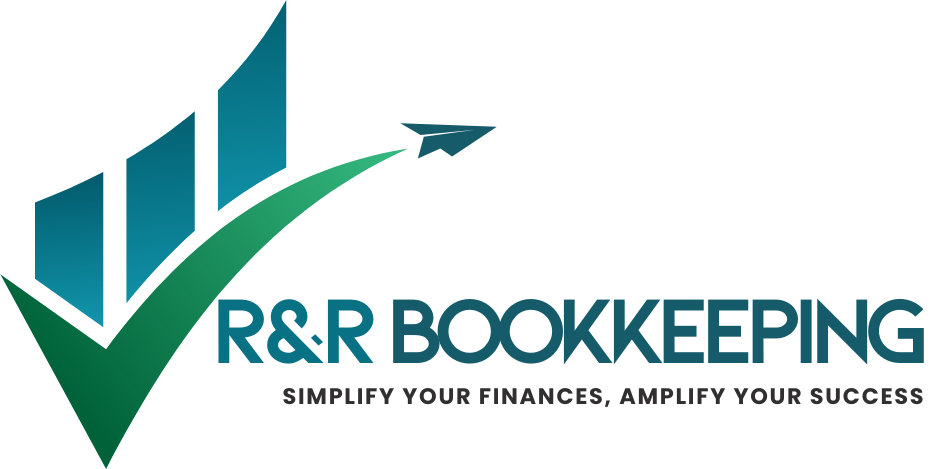Entrepreneurs often wonder: What’s the difference between bookkeeping and accounting? While these two functions often overlap, they serve distinct roles in managing a business’s financial health.
In this blog, we’ll break down the accounting and bookkeeping differences, explain the function of bookkeeping, explore the function of accounting, and help you understand the unique roles of an accountant versus a bookkeeper.
The Basics: Bookkeeping & Accounting Defined
Let’s begin with a straightforward definition of bookkeeping. Bookkeeping is the process of recording daily financial transactions, such as sales, purchases, receipts, and payments. It focuses on accuracy and organization, ensuring every financial entry is documented properly.
Accounting, on the other hand, takes that data and analyzes, summarizes, and interprets it. The goal of accounting is to turn numbers into insights, helping businesses make strategic decisions.
While both are essential for financial management, their purposes and responsibilities differ.
The Function of Bookkeeping
Bookkeeping is the foundation of every financial system. Without clean and accurate books, accounting can’t function effectively. The key functions of bookkeeping include:
- Recording all business transactions chronologically
- Managing general ledgers
- Reconciling bank statements
- Tracking income and expenses
- Generating basic financial reports (like profit & loss statements)
This process ensures your financial records are up-to-date and ready for your accountant to review and interpret.
To learn more about keeping your records up-to-date, read our blog on the purpose of bookkeeping and why it matters.
The Function of Accounting
Accounting builds upon bookkeeping. Once the data is recorded, the accountant steps in to:
- Analyse financial data
- Prepare financial statements
- Interpret business performance
- Handle tax planning and filing
- Provide financial advice and strategy
Accounting helps business owners understand the bigger picture, enabling smarter financial decisions. Without accounting, you might know your numbers, but not what they mean or how to act on them.
The Roles: Bookkeeper vs Accountant
Now that we understand their functions, let’s explore the roles of a bookkeeper vs an accountant in more detail.
Bookkeeper:
- Maintains the daily financial records
- Post debits and credits to ledgers
- Reconcile accounts regularly
- Prepares preliminary financial reports
- Uses software like QuickBooks or Xero
Accountant:
- Reviews bookkeeping work
- Prepares year-end financial statements
- Conducts audits and internal reviews
- Provides tax planning and financial consulting
- Offers insights for budgeting and forecasting
In short, bookkeepers organize the data, and accountants interpret it. That’s the key difference between bookkeeping and accounting.
Why Understanding the Difference Matters
Understanding the difference between accounting and bookkeeping is crucial for business owners. It helps you:
- Know which professional to hire at each stage of your business
- Understand what services you’re paying for
- Avoid errors that can lead to penalties or missed tax deductions
Many small businesses start with a bookkeeper and later add an accountant as their financial needs become more complex.
To dive deeper into why accurate recordkeeping matters, check out our guide on how bookkeeping improves business profitability.
Bookkeeping and Accounting: Do You Need Both?
Yes—both functions are essential, but that doesn’t mean you need two separate people. Many accountants offer bookkeeping & accounting as a bundled service, especially for small businesses.
As your business grows, however, separating these roles can improve efficiency and accuracy. A dedicated bookkeeper focuses on keeping your books clean, while your accountant can focus on financial strategy and tax compliance.
Technology’s Role in Bookkeeping and Accounting
Modern software has blurred the lines between accounting bookkeeping tasks. Tools like QuickBooks, FreshBooks, and Xero allow business owners and professionals to automate much of the data entry and generate instant reports.
Still, even the best software can’t replace the human judgment that accountants provide. Bookkeepers help ensure the accuracy of data, while accountants assist in making informed decisions based on that data.
Accountant Versus Bookkeeper: Who Should You Hire?
If your business needs support with day-to-day financial tracking, reconciling bank accounts, or managing payroll, a bookkeeper is the professional to turn to. They make sure your financial data is recorded correctly. Transactions are categorised properly, and your books remain organised. To understand just how vital this role is, you can read our full guide on why every business needs bookkeepers.
However, if you’re looking for deeper financial insights—such as forecasting, tax preparation, or strategic business planning—then an accountant is essential. Accountants look at your financial data, make reports, file taxes, and guide long-term financial choices. They often take over where bookkeeping ends, making sense of the numbers and offering advice that drives growth.
Many small businesses choose to work with a professional or firm that offers both bookkeeping & accounting services. This is especially helpful when managing additional tasks like payroll services, where coordination between recording and reporting is key.
If you’re just starting out, a bookkeeper might be all you need. But as your business grows and financial needs become more complex, having an accountant on your team can provide clarity, compliance, and confidence.
Conclusion: Bookkeeping and Accounting Work Together
To wrap up, the difference between bookkeeping and accounting lies in scope and purpose. Bookkeeping focuses on recording financial data, while accounting is about interpreting that data and using it to drive business decisions.
Both are vital to financial success, and understanding how they work separately and together can give your business a solid financial foundation.
Whether you choose to hire a bookkeeper, an accountant, or both, make sure they understand your goals and can grow with your business.
FAQs:
Q1: Is bookkeeping part of accounting?
Yes, bookkeeping is the first step in the accounting process. It’s where data collection begins.
Q2: Can one person do both bookkeeping and accounting?
Absolutely. Many small businesses rely on professionals who offer both services, especially when starting out.
Q3: What’s the best software for accounting and bookkeeping?
Popular tools include QuickBooks, Xero, and FreshBooks. The best choice depends on your business size and needs.



